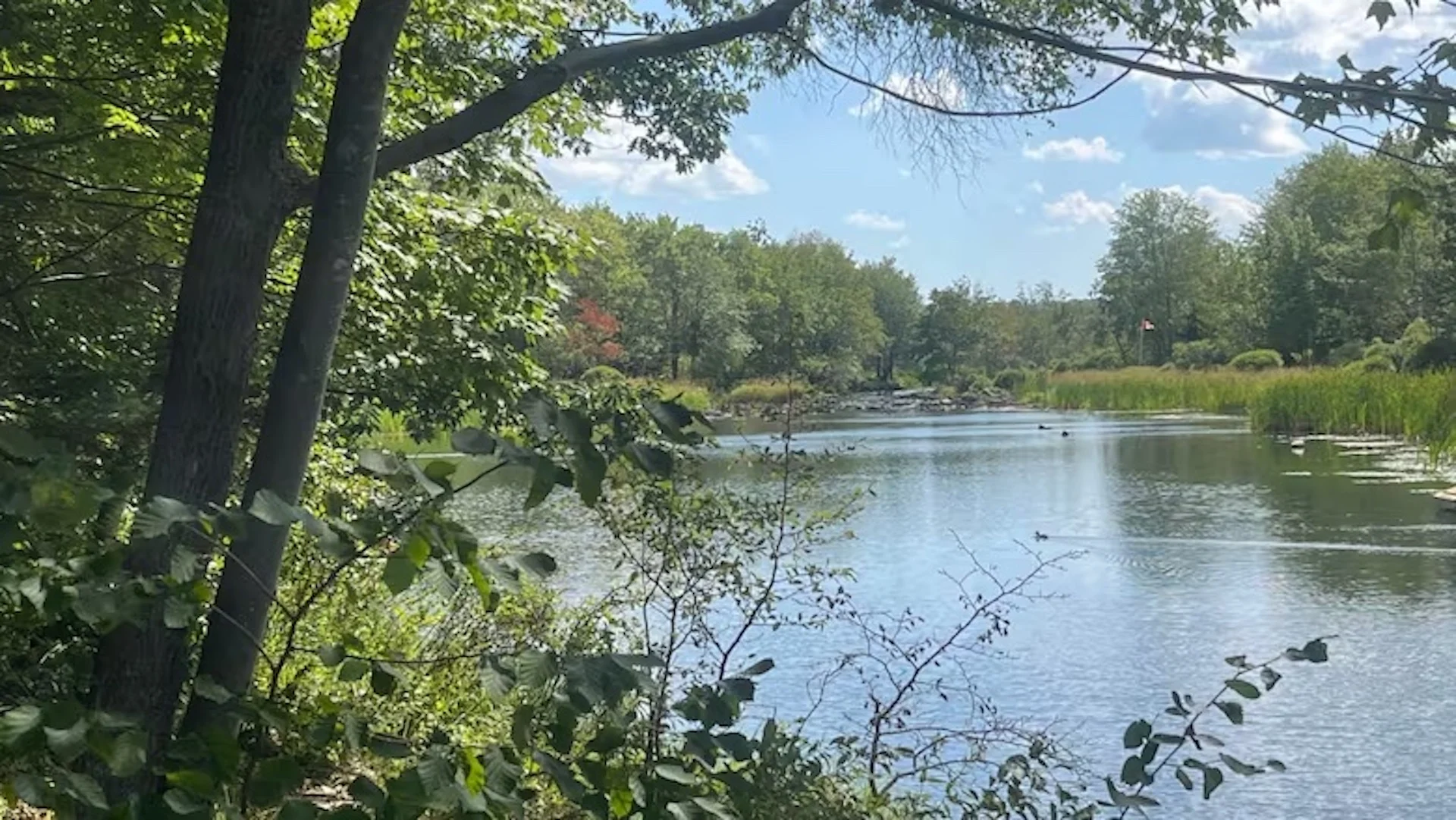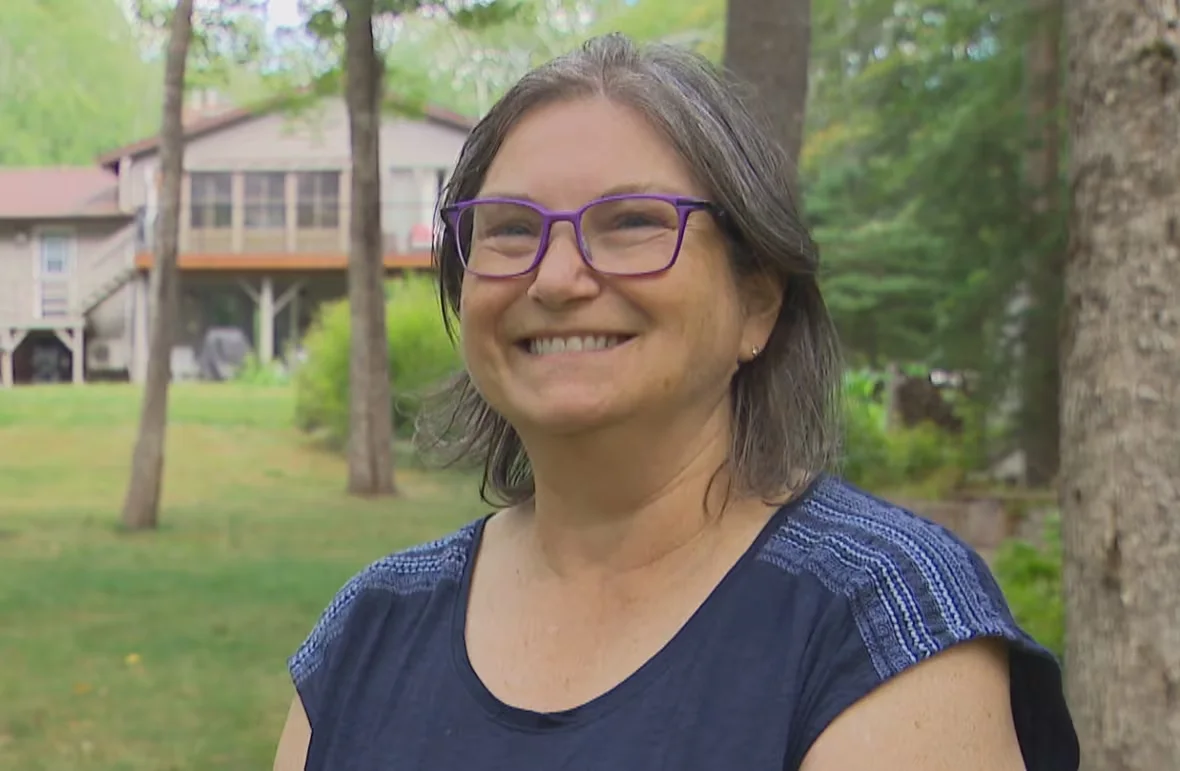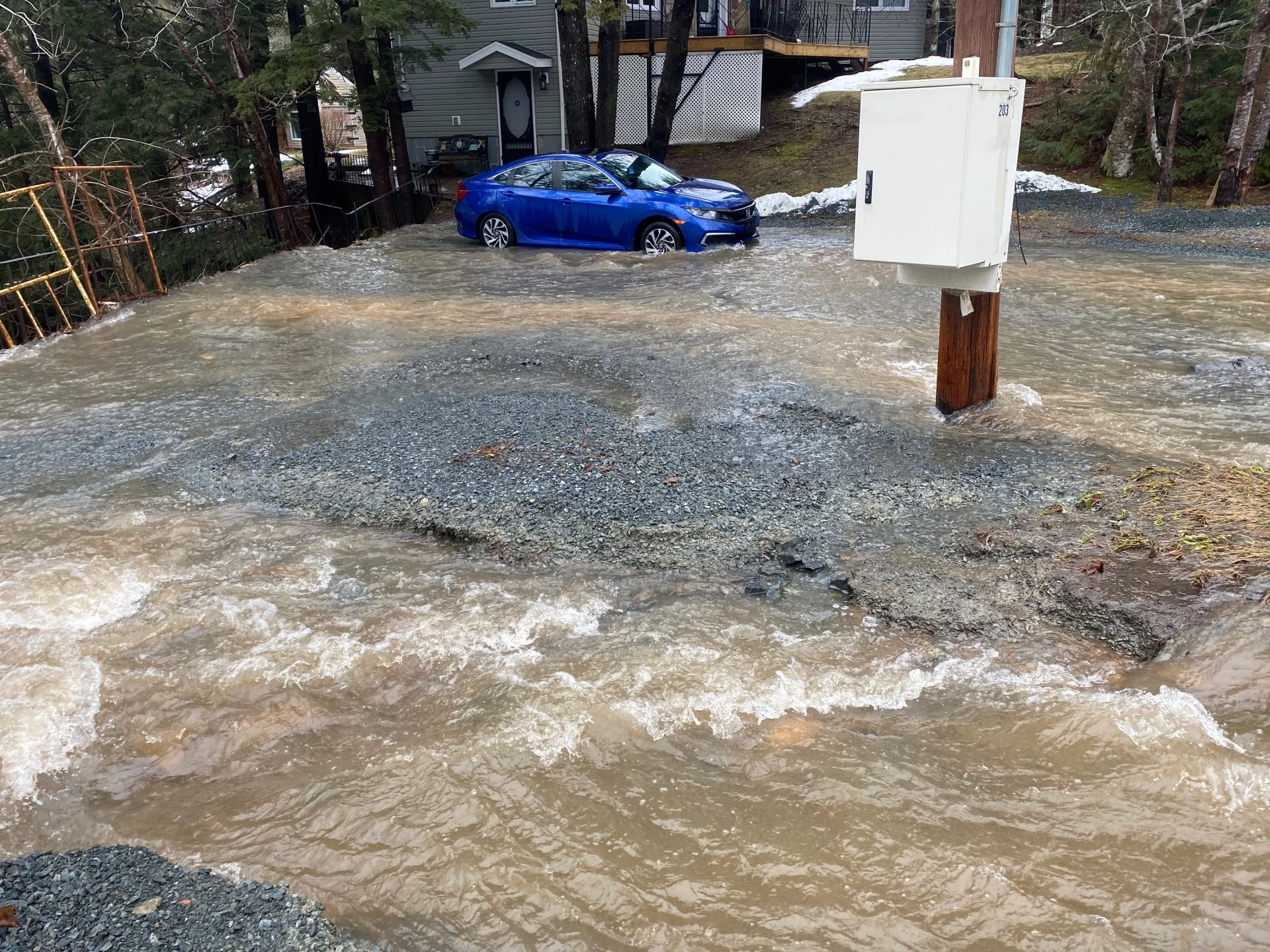
Homeowners, buyers face increasing, 'challenging' risk from climate disaster
Homeowners and buyers are facing increasing risks from climate disasters. Insurance experts say it is creating challenges.
Eileen Moore has lived on a waterfront property near the Shubenacadie Lakes System for a couple years. Her property falls within a floodplain for a once-in-a century flood.
When CBC approached her to ask if she had any concerns, she said she hadn't known her home was on a floodplain.
SEE ALSO: Canada's insurance sector faces climate catastrophe claim deluge
Earlier this month, Halifax Regional Municipality identified more than 1,200 properties near the Shubenacadie Lakes System likely to be affected by major floods. The study, released on the municipality's website, includes an interactive map predicting floodplains for 1-in-20 and 1-in-100 year floods.
Moore said she's not very concerned because her house is elevated and the event is unlikely.
"But I do need to check my insurance because I'm not sure I have flood insurance for [if] it gets into my garage, my basement."

In 2023, heavy rainfall caused some flooding on Moore's street. Her home wasn't affected but about a third of her yard flooded. "Maybe only a couple of inches, but it was completely underwater," she said.
Moore said some residents were hit hard. "We're on high ground.… But two of our neighbours had water plow right through their properties."
Some of Moore's neighbours with homes in the 20-year map said they didn't know the map existed or that their properties could be affected.
HRM staff declined CBC's request for an interview, but said in a statement that the report has been completed since 2020 and has been available on request. They also made a Facebook post when the report was released.

February 2024 flooding in Fletchers Lake, N.S. (Nathan Coleman/The Weather Network)
The Shubenacadie Lakes region is one of 10 sites the HRM has deemed high priority for flood-risk assessment and mitigation. The city said it may modify building regulations in future with this study in mind.
A similar study on the Sackville Rivers found more than 900 properties in the vicinity of the 1-in-20 year floodplain. In April, council moved to amend land-use bylaws in the area.
Growing climate concerns
Donna Harding, an owner and broker at Engel & Völkers Nova Scotia, said more work is needed to get risk information out to the public so people can make informed decisions.
She said finding information about flood risks can be confusing because each municipality has its own assessment system and mitigation plan.
"Even if we had some sort of a centralized provincial website that was general information for the public and would then direct them to the municipality because a lot of people don't know where to start," said Harding.
Harding said realtors spend a lot of time researching and speaking to municipalities to get all the information, and the risk to property varies case-by-case due to factors like placement of homes and elevation.

An example of what can be seen on Halifax's flood plain map. (Halifax.ca)
Harding said climate-related risks like floods and fires are becoming a growing concern for home buyers and property owners.
"When I first came into this business 22 years ago, no one was talking about flooding or coastal erosion or forest fires," said Harding.
"I don't know that they're impacting property values yet, but there's certainly a conversation around property values," said Harding.
Changing insurance costs
Harding said insurance companies avoid insuring properties near disaster sites. After the 2023 Tantallon wildfires, Harding said some providers scaled back insurance coverage to the area.
She said this happened again after the Susies Lake fire when one of her advisers closed on a property the day after it started. "They closed on their property and then found out a few hours later that their insurance was no longer valid."
Most standard home insurance packages cover fire damage, but flood coverage is separate, and could be refused if residents live in high-risk zones.
Weather-related damages
Daniel Ivans, an insurance expert with Rates.ca, said companies look at flood maps to determine pricing.
"If your home previously was not in an area that was as prone to flooding, but now it is, you could expect to see an increase in premiums from most providers," he said.
Ivans said many Canadians are facing increased rates as natural disasters become a more frequent risk.
With over $8.5 billion insured losses, last year was the most expensive year for weather-related damages in Canadian history, according to the Insurance Bureau of Canada.
"It's something that's hitting all consumers, not only provincially, not only nationally, but globally," said Ivans. " A lot of governments are working with insurance companies to tackle how consumers are being impacted by the weather and what they can do to account for that."
WATCH: Three tips to protect against flooded basement damage
Thumbnail courtesy of Olivia Piercey/CBC.
The story was originally written by Olivia Piercey and published for CBC News.